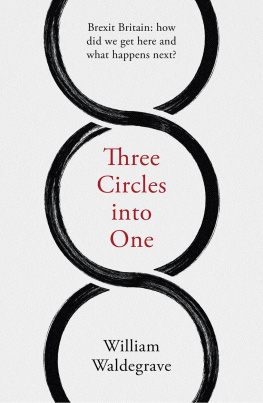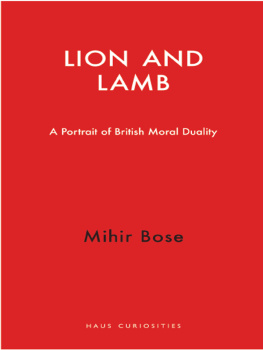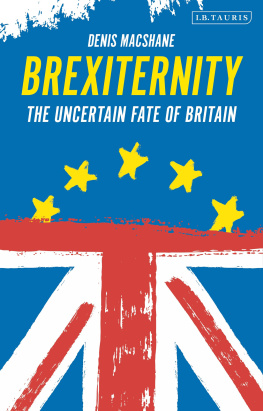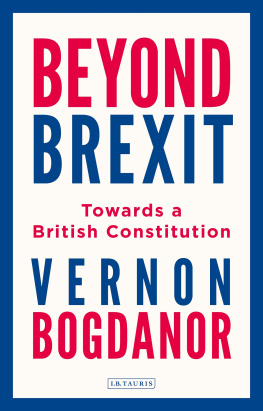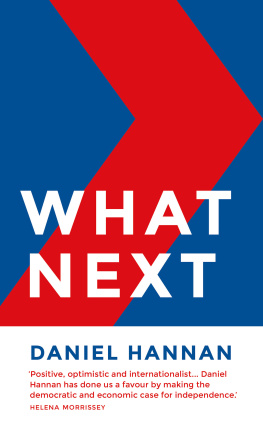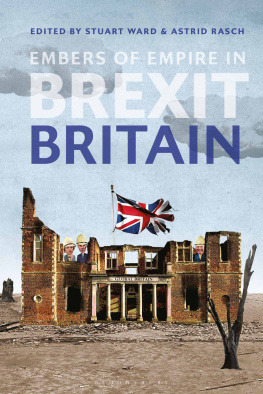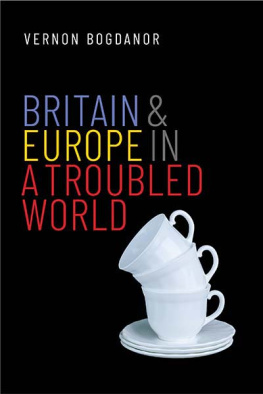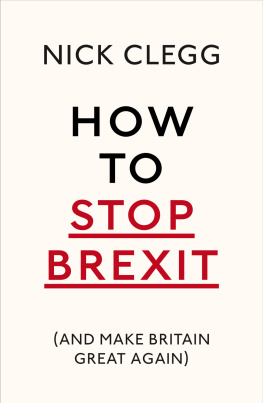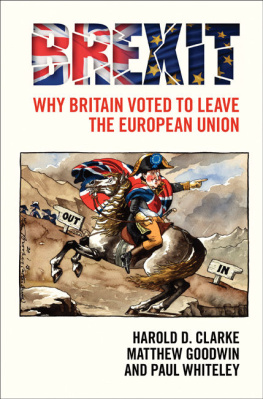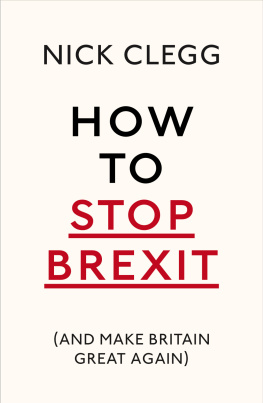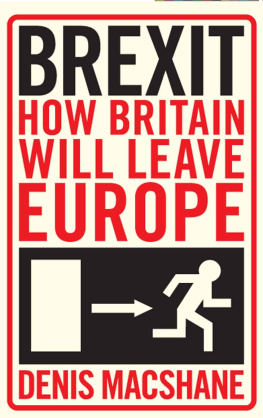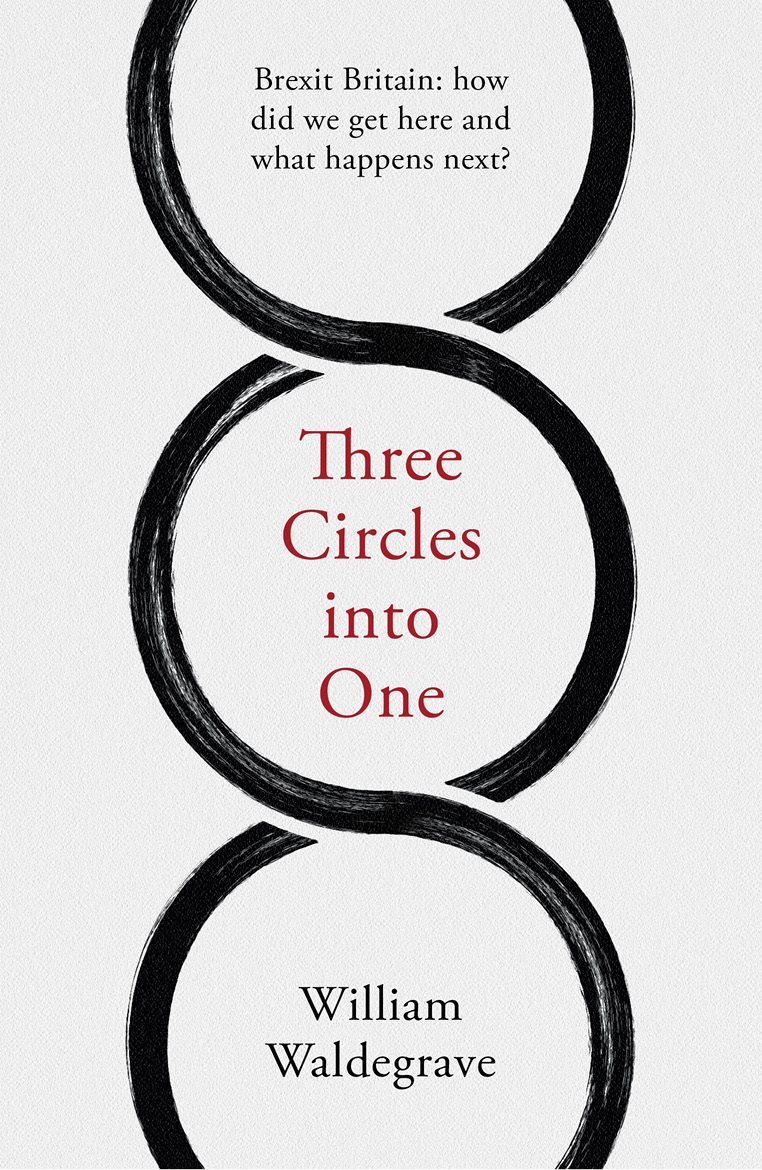Three Circles into One
Three Circles into One
William Waldegrave
Mensch Publishing
Mensch Publishing
51 Northchurch Road, London N1 4EE, United Kingdom
First published in Great Britain 2019
Copyright William Waldegrave, 2019
William Waldegrave has asserted his right under
the Copyright, Designs and Patents Act, 1988,
to be identified as the Author of this work
All rights reserved. No part of this publication may be reproduced or transmitted in any form or by any means, electronic or mechanical, including photocopying, recording, or any information storage or retrieval system, without prior permission in writing from the publishers
ISBN: PB: 978-1-912914-10-4;
eBook: 978-1-912914-11-1
Typeset by Van-garde Imagery, Inc., Florida, United States
To my children
Katie, Liza, Jamie and Harriet
Whose generation will have to pick up the pieces
Contents
Chapter One:
Chapter Two:
Chapter Three:
Chapter Four:
Chapter Five:
Chapter Six:
Chapter Seven:Can Normal Service
Be Resumed?
Chapter Eight:
Chapter Nine:
Chapter Ten:
Chapter Eleven:
Chapter Twelve:Punching at our
Correct Weight
Chapter Thirteen:
Foreword
A s I write in the warm summer of 2019, Britain is moving, fast, towards a political and more than political crisis which feels quite different from anything, I at least, have experienced before. Old party allegiances are crumbling as we watch and the Kingdom is at very real risk of dissolution, with the claim that Boris Johnson may be the last Prime Minister of the United Kingdom of Great Britain and Northern Ireland not quite absurd. Large swathes of industry face what some of its leaders describe as Armageddon and Parliament seems incapable of doing its job of mediating our conflicts and finding a way forward. Anger and bitterness divide us. The world watches as what was once taken to be the most skilful democracy in the world rattles toward what looks like a chaotic crash.
How on earth did we get here, after what at least on the surface looked like a very long period of broadly consistent and successful leadership? What happens next?
I will argue that the referendum result which led us to wake up in a different country on that June morning in 2016 had roots which lay in the slow dissolution of the national narrative of our identity, which was crafted after the Second World War. I do not believe in inexorable processes of history, and things could have been different if different decisions had been taken by different personalities but the waves through which leaders have to steer have their origins.
This short book is not a doomed attempt to predict exactly what will happen in the next six months or the next year or two. It is impossible, however, to attempt the second half of my essay namely a sketch of what narratives Britain might adopt in the future to replace the one which is lost without considering, as everyone else in the country is considering, the difficulties immediately ahead. I describe the Brexit process, whether completed or frustrated, as a toxic and sulphurous ditch. And cross it we have to: history may not be driven by inexorable forces, but it does not stop.
Then, whatever has happened, a massive task of national reconstruction will need to be undertaken. What will need rebuilding will be the damaged institutions, damaged allegiances to those institutions and damaged mutual trust among citizens. My thesis is that none of this necessary rebuilding will be achievable unless we settle on a new and coherent national narrative to replace that which has now dissolved. What kind of a country will we want to be? In my consideration of four possible future national narratives, I must make some guesses at what could happen on the way across the Brexit ditch, in order to show why I think the damage we have already inflicted upon ourselves will get much worse, and will not allow for any easy return to a lost normality.
Let me be clear about one thing: I believe that Britain can live sensibly outside the European Union just as it can live sensibly within it. What is toxic, however, is the political process which started with the referendum campaign and has continued ever since. This process is far from finished and its toxicity will be likely to increase before it is completed. Its exact course is difficult to predict but the damage it has done, is doing, and will continue to do for some time yet, is all too easy to see.
I do not believe the worth of my analysis depends on the accuracy of my predictions for the immediate future. All I argue is that the next period of our islands story will not be plain sailing. If I am wrong in that, well, let us sing Hallelujah.
1This Feels Different
D oes this not feel different? Since I was born in 1946, political crises have come and gone, but they came and went as episodes in a continuing story the continuation of which we did not doubt. Some chapters were disastrous: a mad government lied to us over the invasion of Egypt in the Suez Crisis of 1956, involving us in a doomed and secret conspiracy with the French and Israeli governments. There was bitter recrimination within the political classes when the venture failed. Families argued and dissenting members of Parliament were deselected in the name of a patriotism stirred up by a disreputable nationalistic popular press. However, within two years the government which had conducted the fiasco (after little more self-analysis than a change of leader), was re-elected with a much larger majority than before, and very nearly won the next election after that into the bargain.
Most of the national story went on its way. We shed empire largely peaceably, modernised social attitudes, become more prosperous, chose governments sometimes of the centre-left and sometimes of the centre-right. Taxation sometimes went up and sometimes went down. Anxieties mostly ill-founded about our relative failure compared to other nations industrially or economically led to changing fashions in policies. Sometimes French statism was the latest thing; sometimes Scandinavian or West German consensus-based soft corporatism; for a while American business school efficiency ruled the roost, then came a dose of free market liberalism. Things went on. A 2 to 2 per cent long-term growth rate was not much different from that of any other mature economy, once those which had been laid waste by the Second World War had rebuilt themselves at speed and settled down to maturity once again.
A hard chapter was the restoration of powers to Parliament challenged by organised labour: bitter industrial conflict in the seventies and eighties, some of it with a genuine revolutionary tinge on the part of some union leaders, did indeed induce a different kind of crisis, and took courage and determination to defeat. The defeat was enabled by social democrats in the unions and the political parties as much as by Conservatives in parliament. The solution of this conflict strengthened, rather than weakened, the parliamentary and broader political institutions which carried the country through.
At some times, pessimism and even defeatism infected our rulers. There were strange (and in retrospect, comic) fantasies at over-lubricated dinner parties: would Lord Mountbatten, assisted by an implausible newspaper magnate called Cecil King, take the country over to rescue us from our ungovernability and flush out the reds from under the bed? No, he would not. There was no revolution or counter-revolution. There were deeply held divisions of opinion, leading to civil disobedience and mass protest from time to time. But, for example, large ban-the-bomb marches to Aldermaston, where Britain makes nuclear weapons, passed off peaceably, led by the aristocratic logician and philosopher Bertrand Russell, who had once proposed the pre-emptive atomic bombing of the Soviet Union but had changed his position.

